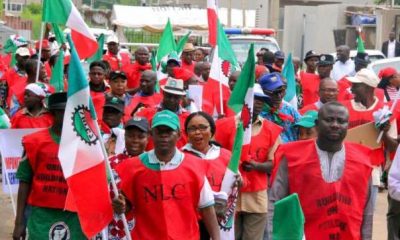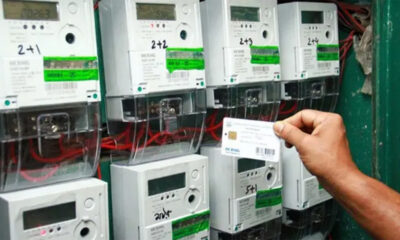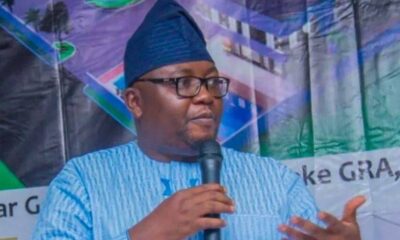Business
Band A electricity customers complain of high tariff, seek review
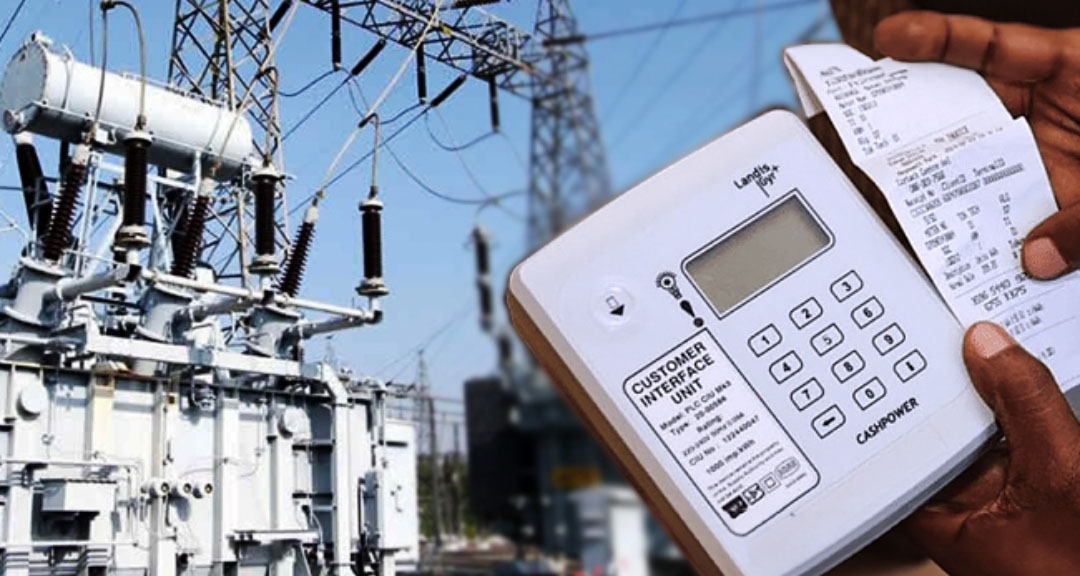
Band A electricity customers complain of high tariff, seek review
Many electricity consumers in the Federal Capital Territory (FCT) on Band A, have appealed to the Federal Government to lower the high tariff amid the economic hardship.
The News Agency of Nigeria (NAN) reports that Band A customers are those who enjoy at least 20 hours of electricity daily and are expected to pay N209.5/kilowatts per hour (KWh).
The consumers who live at Lugbe, Area 10, Apo resettlement area, and environs spoke with NAN in Abuja on Sunday.
They said that Band A was okay because they enjoy constant power supply but added that the tariff was too high and so could not cope with the present situation.
Mrs Amen Odigie, a civil servant residing in Lugbe, said that she found herself paying so much to enjoy power supply, which was okay.
Odigie said that what she paid for electricity in the two-bedroom flat she occupied was more than N30,000 in a month.
READ ALSO:
- Physiotherapist: Cellphone, laptop use can increase dementia risk
- Sickle Cell Foundation, LUTH celebrate bone marrow transplant breakthrough
- Breaking: Appeal Court faults ex-CJN Onnoghen suspension, orders FG to unfreeze account
“This is really telling on me, as what I earn as salary cannot go anywhere with the present economic hardship in the country.
”I want to appeal to the government to review the high electricity tariff as this Band A is taking most of my income, ” she said.
Mr Ugochukwu Okafor, also residing in Lugbe, said that the electricity tariff for Band A customers was too high.
Okafor, a Vulcaniser, said that his income in a month could not pay for the Band A tariff.
According to him, he wants the Federal Government to do something about the Band A tariff, as it is too high, in view of the present hardship in the country.
Mrs Anita Adaje, a fashion designer residing in Apo resettlement, said that she used electricity a lot to run her business, and with this Band A tariff, she was not making any profit.
”When you bill customers so high, they will refuse to pay, and this is really affecting my business.
”My appeal is that government should look into this high tariff and do something about it,” she said.
Mr Festus Ogunbor, a printer in Area 10, said that he recharged more than N30,000 daily to run his printing machines.
Ogunbor said that the high cost of electricity was affecting his business as he could no longer do much work.
”How much do I make that I have to be paying so much for electricity? Please, I want the government to look into this high tariff as it is seriously affecting businesses and cost of living,” he said.
Mr Chidi Okeke, also a printer in Area 10, said that he had been finding it difficult to power his printing machines because of high electricity tariff.
Okeke said that the government should look for a way of reducing the high cost of electricity to boost businesses as well as encourage more Nigerians to go into business. (NAN)
Band A electricity customers complain of high tariff, seek review
Business
I’m honoured, excited over World Bank’s appointment – Dangote
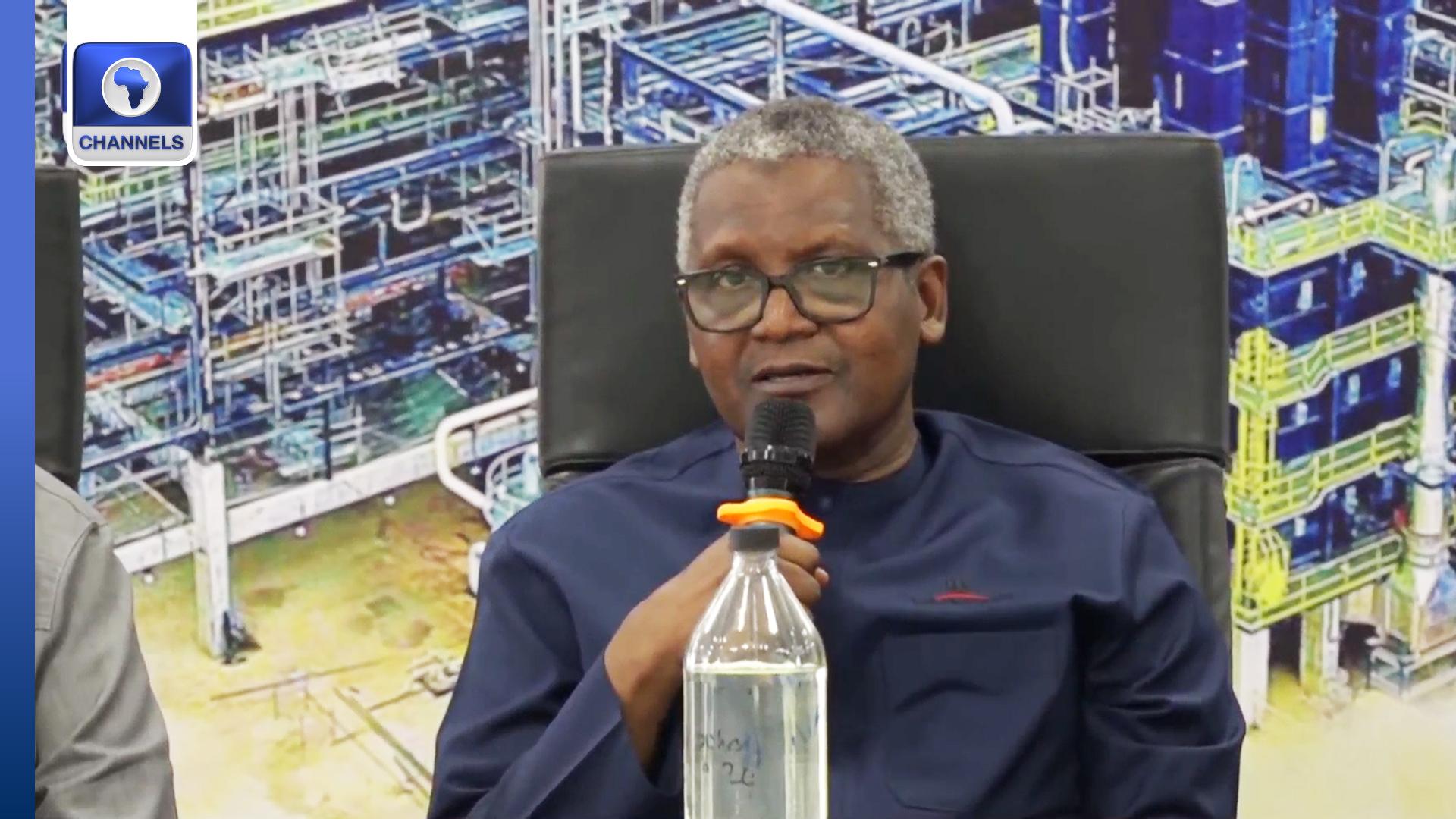
I’m honoured, excited over World Bank’s appointment – Dangote
President and CEO of Dangote Group, Aliko Dangote, has expressed gratitude following his appointment to the World Bank’s Private Sector Investment Lab, a global initiative aimed at accelerating private investment and job creation in emerging economies.
In a statement confirming the development, Dangote described the appointment as both an honour and a reflection of his long-standing commitment to economic development through private enterprise.
“I am both honoured and excited to accept my appointment to the World Bank’s Private Sector Investment Lab, dedicated to advancing investment and employment in emerging economies,” Dangote said.
“This opportunity aligns with my long-standing commitment to sustainable development and unlocking the potential of developing economies.”
He referenced the successes of the so-called Asian Tigers, economies that experienced rapid growth through strategic investment, as a source of inspiration for advancing similar outcomes in other parts of the world.
The World Bank announced Dangote’s inclusion on Wednesday as part of a broader expansion of the Lab, which enters a new phase focused on scaling up solutions that attract private capital and generate employment in developing countries.
Other newly appointed members include Bill Anderson, CEO of Bayer AG; Sunil Bharti Mittal, Chairman of Bharti Enterprises; and Mark Hoplamazian, President and CEO of Hyatt Hotels Corporation.
READ ALSO:
- Akpabio to represent Tinubu at Pope Francis funeral
- PDP will come out stronger, Saraki reacts to Okowa, Delta gov defection
- Countries eligible to enter US without visas for 90days (full list)
World Bank Group President Ajay Banga noted that the expanded membership underscores the institution’s focus on integrating private-sector leadership into its strategy for global job creation.
“With the expanded membership, we are mainstreaming this work across our operations and tying it directly to the jobs agenda that is driving our strategy,” Banga said.
“This isn’t about altruism—it’s about helping the private sector see a path to investments that will deliver returns, and lift people and economies alike. It’s central to our mandate.”
The lab, which was co-chaired in 2023 by Canadian Prime Minister Mark Carney, previously sought to mobilise £1 trillion in sustainable investment, particularly targeting energy transition projects in emerging markets.
Aviation
Air Peace suspends flights nationwide over NiMet strike

Air Peace suspends flights nationwide over NiMet strike
Air Peace has suspended all its flight operations across the country due to the ongoing strike by the Nigerian Meteorological Agency (NiMet).
The airline said in a statement on Wednesday that it was also suspending operations due to the unavailability of QNH (hazardous weather) reports required for safe landings.
“Due to the ongoing NiMet strike and the unavailability of QNH (hazardous weather) reports required for safe landings, Air Peace has suspended all flight operations nationwide until the strike is over,” Air Peace said.
“Your safety is our top priority. We appreciate your understanding and will share updates as the situation unfolds.”
The airline had earlier announced that the NiMet strike could lead to flight delays and cancellations across its network.
Air Peace added that it was monitoring the situation and working with relevant stakeholders to minimise the impact on customers’ travel plans.
Employees of NiMet commenced a nationwide indefinite strike over welfare issues on Wednesday.
Some of the issues raised involve “NiMet’s refusal to negotiate or implement agreed financial allowances and unresolved entitlements,” including wage awards, peculiar allowances, and outstanding payments from the 2019 minimum wage.
They also accused the management of the agency of withholding important documents, ignoring requests for inclusion of omitted staff in past payments, and neglecting key training programmes in favour of executive retreats.
Business
Nigeria’s gas production increases by 15.6% to 227,931.65 mscf

Nigeria’s gas production increases by 15.6% to 227,931.65 mscf
Nigeria’s gas output has increased 15,6 percent month-on-month, MoM, to 227,931.65 million standard cubic feet, mscf, in March 2025.
But on year-on-year, YoY basis, the nation’s gas output recorded a marginal increase to 227,931.65 mscf in March 2025, from 198,353.62 mscf, recorded in the corresponding period of 2024.
Data obtained from the Nigerian Upstream Petroleum Regulatory Commission, NUPRC, Gas Production Status reports indicated that of the total of 227,931.65 mscf produced in March 2025, 119,552.75 mscf was associated while 108,378.90 mscf was non-associated gas.
Associated gas is extracted in the process of producing crude oil while non-associated gas is produced without crude oil after much investment, exploration and development.
The Ministry of Petroleum Resources (Gas), which is directly involved in the development of policies, targeted at increasing investment in the sector said efforts have been made to increase investment and production of gas in Nigeria.
Similarly, in its recent report obtained by Vanguard, the Nigerian LNG Limited stated: “We are fully committed to expanding our operations with the NLNG Train 7 Project, which will boost our production capacity by 35%, increasing from 22 Million Tonnes Per Annum (mtpa) to 30 mtpa. This project underscores our role as a key player in the global LNG market and positions Nigeria as a top-tier supplier of LNG, leveraging its vast proven gas reserves of 202 trillion cubic feet (the 9th largest globally).
Vanguard
-

 metro17 hours ago
metro17 hours agoOmokri : How Tinubu’s political mastery started with Abiola, says El-Rufai, Obi’s forces can’t stop him
-

 metro3 days ago
metro3 days agoI’m not in supremacy battle with Ooni, says new Alaafin
-

 Education11 hours ago
Education11 hours agoJAMB officials seize candidates’ hijab at Caleb varsity, Muslim students kick
-

 Entertainment2 days ago
Entertainment2 days agoP-Square: Jude Okoye freed after two months detention
-

 International11 hours ago
International11 hours agoUS releases 41 countries granted 90-day entry without visas (full list)
-
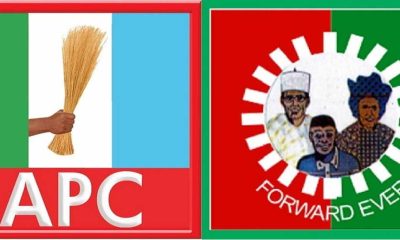
 Politics2 days ago
Politics2 days agoLabour Party collapses into APC in Plateau
-
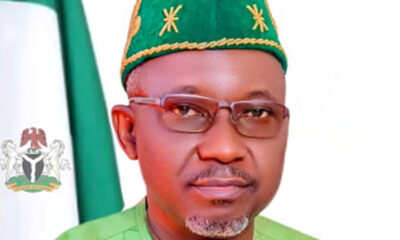
 Business3 days ago
Business3 days agoNigeria’s gas production increases by 15.6% to 227,931.65 mscf
-

 metro2 days ago
metro2 days agoNiger Gov Bago makes U-turn on dreadlocks ban after backlash

